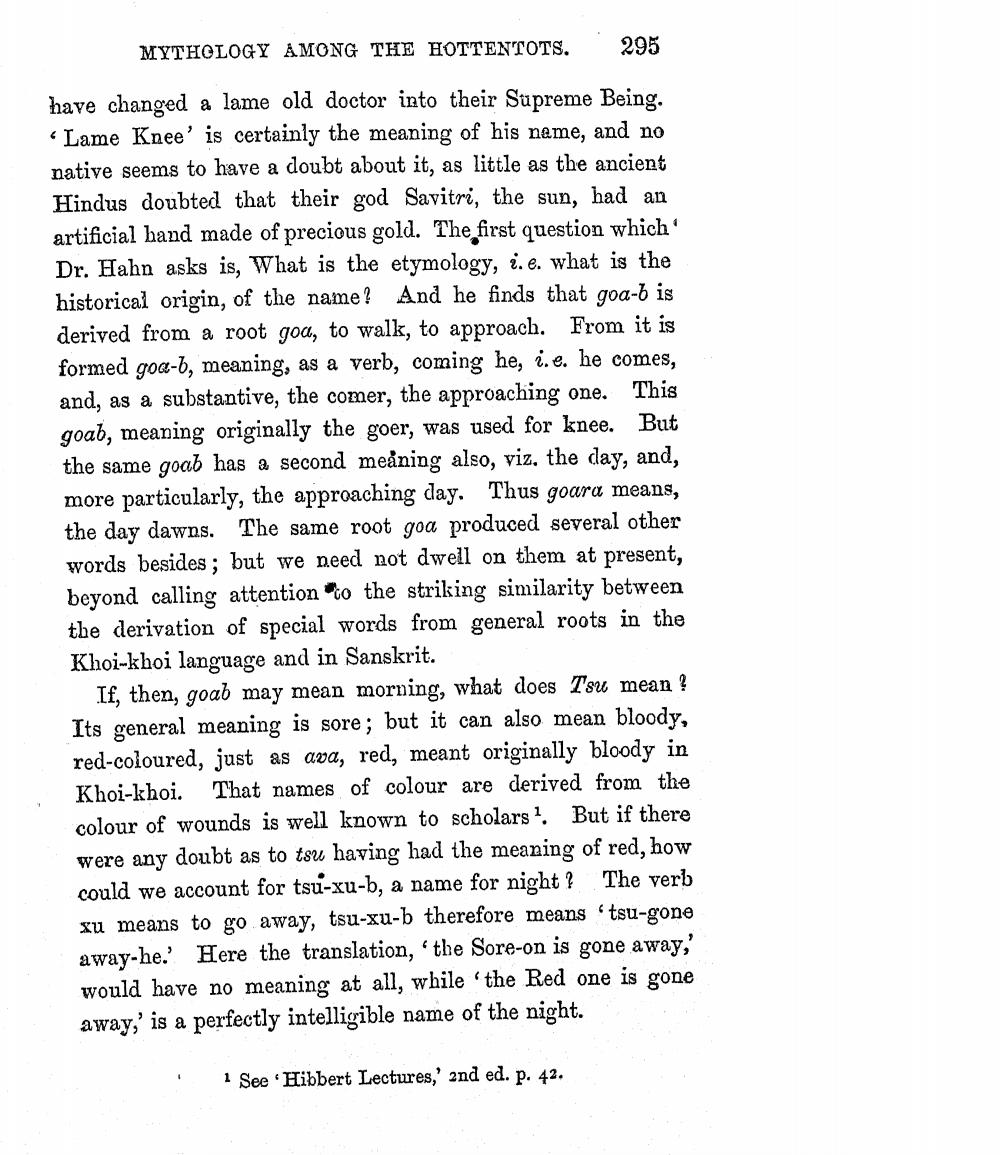________________
MYTHOLOGY AMONG THE HOTTENTOTS.
29
have changed a lame old doctor into their Supreme Being.
Lame Knee' is certainly the meaning of his name, and no native seems to have a doubt about it, as little as the ancient Hindus doubted that their god Savitri, the sun, had an artificial hand made of precious gold. The first question which Dr. Hahn asks is, What is the etymology, i.e. what is the historical origin, of the name? And he finds that goa-b is derived from a root goa, to walk, to approach. From it is formed goa-b, meaning, as a verb, coming he, i.e. he comes, and, as a substantive, the comer, the approaching one. This goab, meaning originally the goer, was used for knee. But the same goab has a second meaning also, viz. the day, and, more particularly, the approaching day. Thus goara means, the day dawns. The same root goa produced several other words besides ; but we need not dwell on them at present, beyond calling attention to the striking similarity between the derivation of special words from general roots in the Khoi-khoi language and in Sanskrit.
If, then, goab may mean morning, what does Tsu mean? Its general meaning is sore; but it can also mean bloody, red-coloured, just as ava, red, meant originally bloody in Khoi-khoi. That names of colour are derived from the colour of wounds is well known to scholars 1. But if there were any doubt as to tsu having had the meaning of red, how could we account for tsu-xu-b, a name for night? The verb xu means to go away, tsu-xu-b therefore means 'tsu-gone away-he. Here the translation, the Sore-on is gone away,' would have no meaning at all, while 'the Red one is gone away,' is a perfectly intelligible name of the night.
!
See Hibbert Lectures,' 2nd ed. p. 42.




